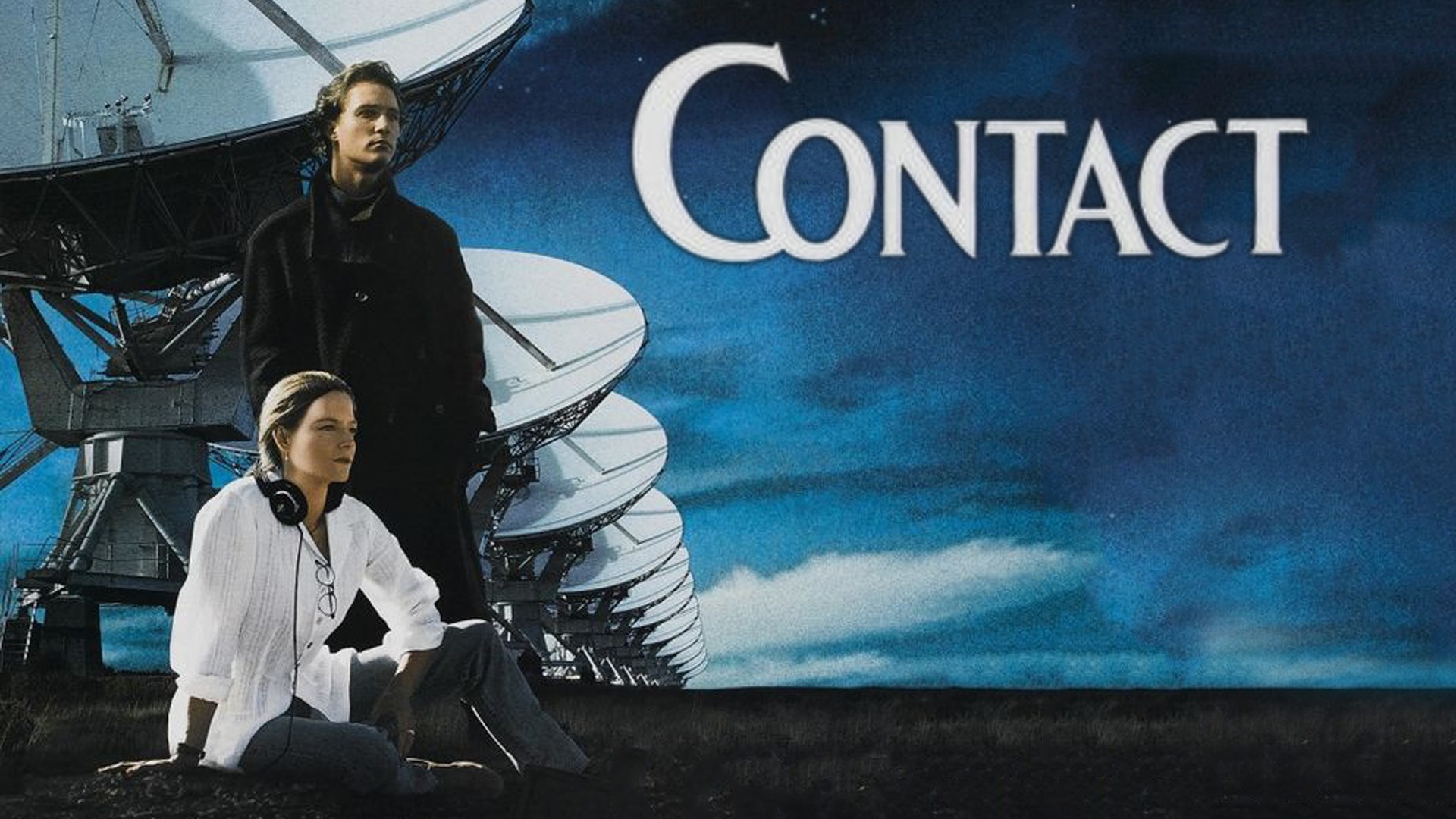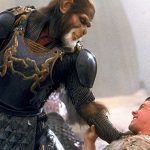“Contact” (1997)

“Contact,” directed by Robert Zemeckis and based on Carl Sagan’s novel, is a thought-provoking science fiction film that explores humanity’s quest for knowledge, the search for extraterrestrial intelligence, and the complexities of faith and skepticism. Released in 1997, the film remains a landmark in science fiction cinema for its blend of philosophical inquiry, technological speculation, and emotional depth.
The narrative centers around Dr. Ellie Arroway (played by Jodie Foster), a brilliant and driven astronomer dedicated to the search for extraterrestrial life. Against a backdrop of skepticism and bureaucratic obstacles, Ellie and her team detect a mysterious signal from the star Vega, containing complex mathematical patterns that suggest intelligent origin. This discovery propels Ellie into a journey of scientific inquiry, ethical dilemmas, and personal introspection.

At its core, “Contact” raises profound questions about humanity’s place in the universe and the intersection of science and faith. Ellie’s unwavering commitment to empirical evidence and rational inquiry clashes with the religious beliefs of Palmer Joss (played by Matthew McConaughey), a charismatic spiritual advisor whom Ellie forms a complex relationship with. Their debates—rooted in their contrasting worldviews—challenge viewers to consider the implications of scientific discovery on religious faith and vice versa.
The film’s narrative unfolds with a blend of scientific speculation and speculative fiction. As Ellie and her team decode the alien signal and construct a machine capable of interstellar travel based on the provided blueprints, “Contact” navigates between the awe-inspiring possibilities of advanced extraterrestrial civilizations and the ethical dilemmas inherent in humanity’s technological progress.

Visually, “Contact” captivates with its depiction of cosmic wonder and technological innovation. The scenes depicting Ellie’s journey through a wormhole and her encounter with an enigmatic alien intelligence are visually stunning and underscore the film’s exploration of the vastness and mystery of the cosmos. The film’s special effects, combined with a haunting musical score by Alan Silvestri, enhance the sense of wonder and awe that permeates Ellie’s journey.
Central to “Contact” is Jodie Foster’s nuanced portrayal of Ellie Arroway—a character driven by intellect and curiosity yet grappling with personal loss and existential questions. Foster brings depth and emotional resonance to Ellie, portraying her as a scientist who embodies both skepticism and wonder in equal measure. Ellie’s journey—from skepticism to awe and eventually to a deeper understanding of her place in the universe—mirrors the film’s exploration of humanity’s quest for meaning and connection.

Thematically, “Contact” challenges viewers to contemplate the boundaries of human knowledge and the implications of encountering advanced extraterrestrial intelligence. The film’s exploration of the moral, political, and societal ramifications of first contact raises timely questions about humanity’s readiness for such a profound encounter and the ethical responsibilities that come with scientific discovery.
In conclusion, “Contact” stands as a poignant and intellectually stimulating exploration of humanity’s quest for knowledge and connection with the cosmos. Robert Zemeckis’s visionary direction, coupled with Carl Sagan’s thought-provoking source material, creates a cinematic experience that blends scientific inquiry with philosophical introspection. Through its compelling narrative, complex characters, and visual spectacle, “Contact” continues to resonate with audiences as a timeless exploration of the frontiers of science, faith, and humanity.

The film’s enduring legacy lies in its ability to inspire curiosity, provoke contemplation, and challenge conventional beliefs about our place in the universe—a testament to the enduring power of cinema to engage and enlighten.











